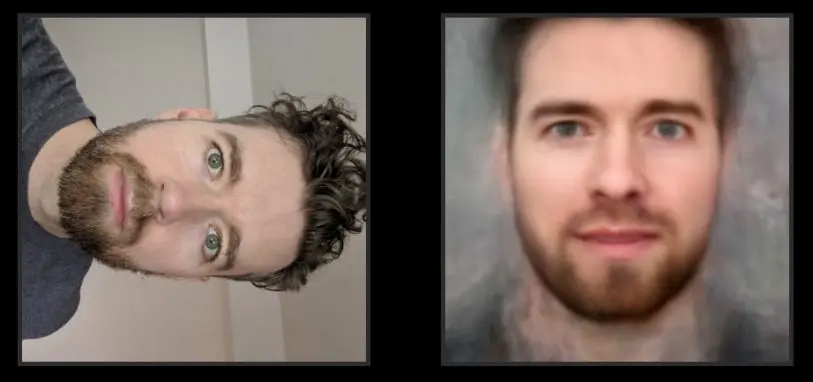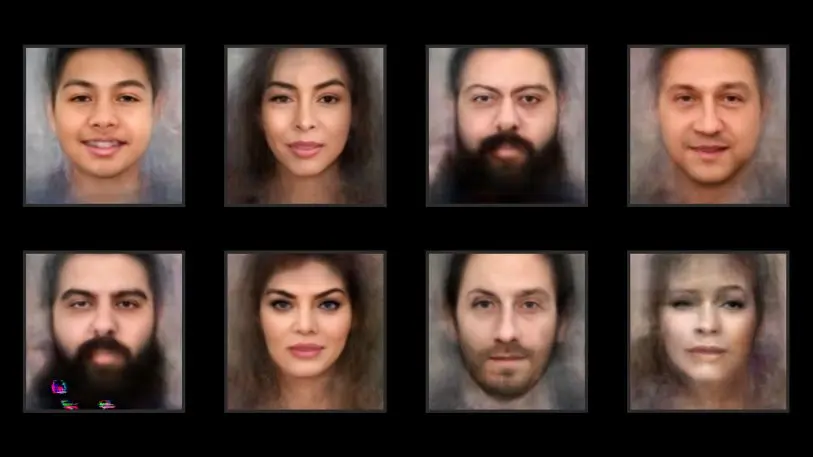I look like the completely forgettable leading man in any Lifetime holiday movie. Or pretty much any white male protagonist in a video game. My face is suddenly symmetrical. My beard is properly trimmed. My curly bedhead is trimmed into a soft buzz cut. And I’m smiling. Ick. That’s it–I look like Chris Pratt! And I have AI to thank.
AI Portraits is a new site and research project by Northeastern University professor Mauro Martino and researcher Luca Stornaiuolo. You upload a photo of yourself, and Martino’s AI tries to reconstruct your face with what it knows about faces.

Here’s the twist: The AI has been taught what a face looks like exclusively through photos of celebrities. So when it redraws your face, it produces your celebrity doppelgänger–yourself, but with better eating habits, more generic features, and probably a lot of scientology equipment in your closet.

Being face-to-face with your celebrity alter ego is a fun and strange sensation. But this experiment also serves a second purpose: It offers a peek into how the software around us works (not unlike other AI experiments out there). “The intention is to share the experience of being portrayed by an AI algorithm, to discover how AI sees you,” the researchers explain. “There is no willingness to improve or deform the starting picture.”
In other words, AI Portraits lets you see how a computer sees you. It reveals the hidden bias of “artificial intelligence” in 2018. These one-trick systems analyze us, categorize us, and reconstruct us–all based upon a very limited understanding of both people and the wider world in which they reside.
In this case, AI Portraits understands what celebrities look like well enough. But that doesn’t mean it understands what people look like, or more granularly, what you or I look like. Which wouldn’t be a problem, if these AIs weren’t quickly being embedded into just about every part of our lives.
Recognize your brand’s excellence by applying to this year’s Brands That Matter Awards before the early-rate deadline, May 3.